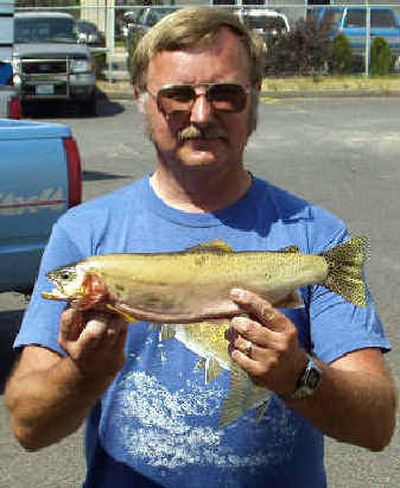Field Reports

RIVER RUNNING
Salmon lottery skirted
The U.S. Forest Service is allowing boaters to float two backcountry tributaries to the Main and Middle Forks of the Salmon River, without having to participate in the annual lottery to do so.
The Payette National Forest is issuing permits that let kayakers and rafters float the South Fork of the Salmon and exit onto the Main Fork of the Salmon. The new permits also allow them to float Big Creek and exit onto the Middle Fork.
The permits are free, but mandatory for all floaters. Overnight camping is not allowed on the Middle or Main Forks.
“Before these free permits were available, it was necessary to acquire a permit for either the Middle Fork or the Salmon River. Those permits are based on a lottery draw system, and as boaters know, are difficult to secure,” said Jane Cropp, branch chief for lands, minerals and recreation with the Payette National Forest.
The new permits are obtained by contacting the Krassel Ranger District in McCall.
However, a closure order for boating will be in effect on Big Creek and a stretch of the South Fork of the Salmon Aug. 1-Sept. 30. The closures are intended to protect spawning wild salmon in the streams.
Associated Press
ENDANGERED SPECIES
Killer whales listed
Significant changes could follow the Washington Fish and Wildlife Commission’s recent decision to add a group of orca’s to the state’s list of endangered species.
“One of the reasons killer whales have been troubled is that food supply has been depleted,” said David Bain, an affiliate assistant professor of psychology at the University of Washington who has been researching local whales for 25 years. “The state has a major role to play in salmon.”
The population of “southern resident” orcas in Puget Sound and nearby waters has declined 18 percent since 1995, according to a state Fish and Wildlife Department report.
The “southern residents” in the inland marine waters off Washington state and British Columbia include 84 orcas — down from a historical high of more than 120 in the 1960s.
A state listing would trigger a recovery plan that would guide efforts to protect the killer whales. Southern resident orcas are listed as “depleted” under the U.S. Marine Mammal Protection Act, which also requires a recovery plan for the species.
A decision by the U.S. National Marine Fisheries Service to grant the orcas federal endangered status remains in limbo.
Associated Press
ENDANGERED SPECIES
Cabinet plan criticized
Some critics say federal and state wildlife agencies are rushing a plan to augment the slim grizzly bear population in the Cabinet Mountains with transplants from the Northern Continental Divide.
The U.S. Fish and Wildlife Service and Montana Fish, Wildlife and Parks are collaborating on a proposal to transplant one or two female grizzlies.
Wayne Kasworm, an FWS bear biologist, estimates the Cabinets have only 15-20 grizzlies, a precariously low number, and says transplants may be necessary for the population to recover. The Northern Continental Divide area’s grizzly population can spare a couple, he said.
Brian Peck, a consultant with the Great Bear Foundation, said most bear conservation groups favor augmentation, but he thinks the state, the Forest Service and the Fish and Wildlife Service can do more to ensure a successful transplant.
The Forest Service, he says, has done a “terrible job of protecting habitat” on the periphery of the Cabinet Mountains Wilderness.
More roads should be closed, food storage and sanitation requirements should be improved, and the state should follow through on plans to hire a grizzly bear management specialist for the Cabinet population, Peck said.
Associated Press
FISHING
Winston casting offshore
R.L. Winston Rod, maker of top-quality fly fishing rods based in Twin Bridges, Mont., is considering having its least-expensive line of rods manufactured overseas.
Winston Rods’ president Woody Woodard said the company hasn’t made its final decision, but there are reasons it is considering having the IBIS line manufactured in China.
“Basically, we’re out of capacity,” he said.
Winston’s employees have voiced concerns about the proposal, citing the company’s stand for uncompromising quality and noting that workers in China would receive between 30 and 50 cents an hour.
Associated Press